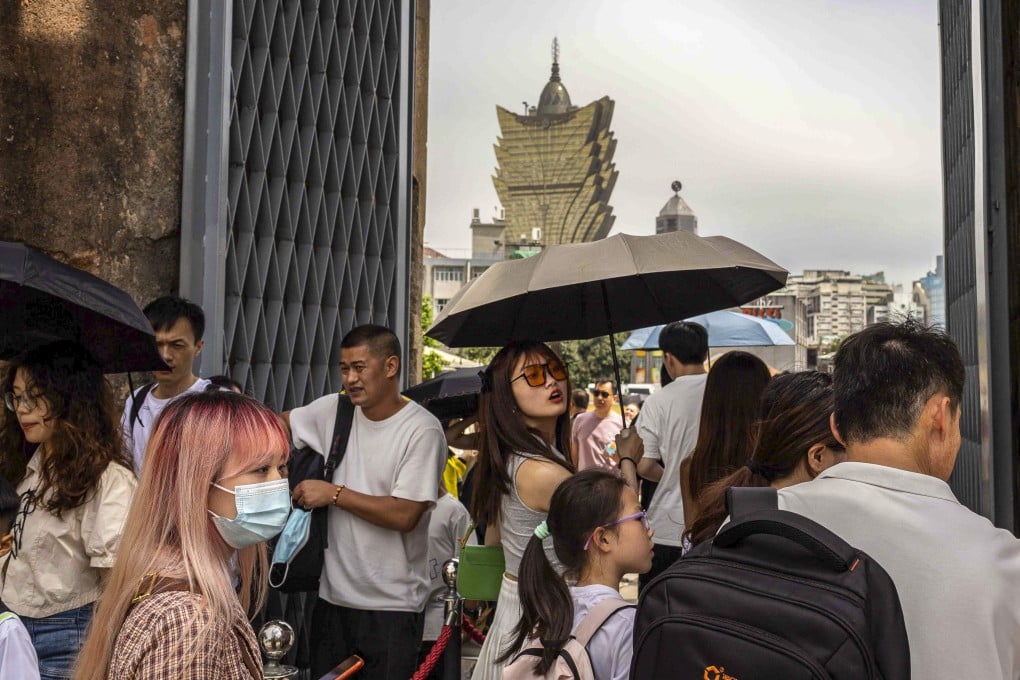Macau casinos hit the jackpot as return of mainland Chinese tourists fuels fourfold surge in revenue
- Macau casino revenues rose to 15.6 billion patacas (US$1.93 billion) in May, more than four times what they earned a year ago
- Full recovery requires a stronger rebound in Chinese economy, tourists from other countries, Hong Kong analyst says

On a monthly basis, the latest earnings were about 6 per cent higher than the 14.7 billion patacas Macau’s most important industry generated in April, according to government data. Since the start of the year, Macau’s casino revenues have amounted to about 65 billion patacas, nearly three times the 23.8 billion patacas registered in the same period a year ago.
The latest total, however, is still just about half of the 125.7 billion patacas that Macau’s casino industry earned in the same period in 2019, the last full year before the coronavirus pandemic struck.
“The comparison with last year will be amazing because of the low base,” said Louis Tse Ming-kwong, managing director of Hong Kong-based broker Wealthy Securities. “In the medium term, the city and casino operators have to widen the business as encouraged by the central government. It will take time [for a full recovery of the gaming segment] and will require a stronger recovery by the Chinese economy.
“Besides Chinese tourists, inflows of tourists from other countries should also be increased, so casinos must do more promotion work.”
Macau – the world’s largest gaming hub – is the only place in the whole of China where casinos are allowed. About half a million mainland travellers went to the special administrative region for the Labour Day holiday, a five-day break that began on April 29. It was the first “golden week” break in China since Beijing shelved its zero-Covid strategy in December.
